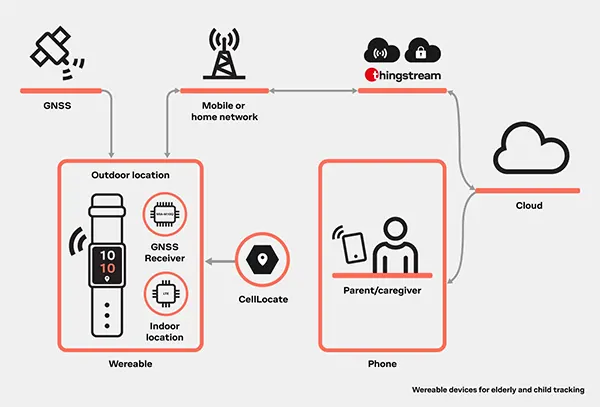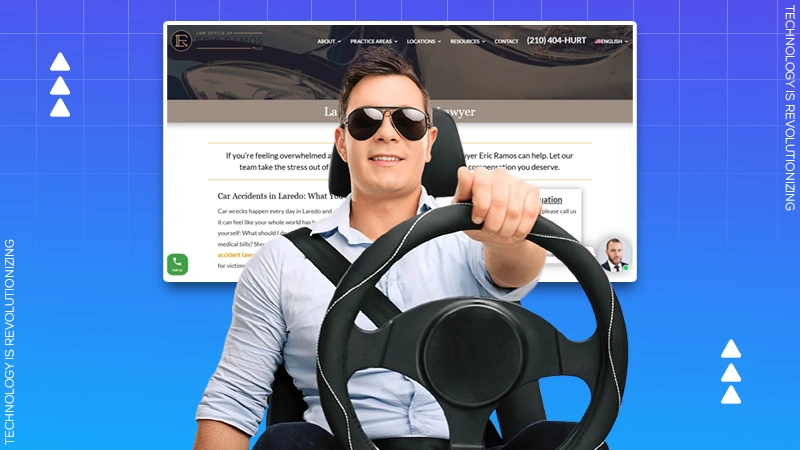Wearable Technology and GPS Trackers: Enhancing Personal and Professional Life
GPS trackers have always been a conventional device since their invention. And the benefits simply doubled when wearable technology came into play!
These tools, which first started as a mobile and automobile feature, are now becoming a standalone function in smart devices. These devices, including wristwatches, sportswear, rings, and even footwear, are easy to wear and highly portable.
Through this article, dive into the ocean of GPS trackers as you explore the various features equipped with these cutting-edge gadgets. Also, learn about Using GPS Trackers To Track Your Family Members by reading this article.
A Glimpse into GPS Trackers
GPS trackers allow one to keep track of their, or someone else’s, whereabouts in the comfort of their home. Now securely integrated with the most common wearables, such as a watch, pendant, or shoe, it enables one to stay safe and connected, despite the location.

GPS tracking products usually only require three initial steps to begin with:
- Keep the device connected to the internet (through a mobile network or Wi-Fi router)
- Install the tracking application on your device
- Connect both devices and start receiving real-time location updates
However, a lot of trackers require users to pay a monthly subscription for the application. The cost of this subscription, ranging from $18-$100/month, depends on the amount of features provided by the supplier.
Features Offered by GPS Trackers
Before choosing a GPS tracker, check on the features they offer with the product. Here’s a list of functions commonly offered by most GPS trackers in the market:
Real-Time Location Sharing
With built-in GPS functionality, you can receive real-time updates about the location of your loved ones. This helps you stay connected with them in times of distant travel or emergency situations. By monitoring their location, you can stay ahead of time to prevent them from venturing into a dangerous area as well.
Geo-Fencing
A lot of GPS trackers like SpaceHawk GPS tracker for cars, allow you to set up geo-fences, i.e., virtual boundaries for the tracker. With that, you will receive instant alerts whenever the tracker enters or exits the geo-fence range. Using this feature you can mark out danger-prone areas that should be avoided.
Commercial Fleet Tracking
In case you’re an employer often troubled about your employees’ whereabouts, this feature is made for you! Attach a GPS tracker, such as Konnect GPS, to the company car to receive employee locations whenever they’re sent for external tasks. There is even an accelerometer that will alert you if they are driving too fast.
Quick Assistance
Most trackers have a quick emergency button for situations of distress. When in immediate need, users can hit the alert button to instantly notify authorized contacts, or other emergency services like ambulance.
Fitness Tracking
Certain wearable GPS trackers, such as smart bands, provide access to fitness monitoring functions like step counting, distance measuring, and calorie tracking. These offer a simple method to monitor your physical activity and stay motivated to reach your fitness goals.
Elderly Tracking
Seniors who use smartwatches with GPS tracking can benefit from more independence. Using the device, their family members, friends, or caregivers, can easily keep track of their movements, and offer assistance whenever required.
Decide on the purpose for which you require a GPS tracker. Mark down the functions needed to fulfill the aim. Lastly, browse the options and select the supplier that best fits your needs and budget.
Things to Know Before Opting for a GPS Tracker
When it comes to incorporating a GPS tracker into your lifestyle, you must be aware of certain aspects:
- Privacy Concerns: Sharing location data may raise privacy concerns. Reviewing privacy policies and security measures from the manufacturer is crucial.
- Reliance on Battery Life: Wearable GPS trackers rely on battery power, which can be drained or forgotten.
- Initial Setup and Learning Curve: Initial setup can be confusing or overwhelming for young children or elderly people.
- Cost: Advanced features often require cost expensive subscriptions.
- Limited Range: GPS signals can be affected by obstacles, affecting accuracy and range.
- Signal Interference: Indoors or weak GPS signals can impact performance.
- Potential False Alarms: False alarms may trigger unnecessary notifications or emergency responses.
- Data Plan Requirements: Some trackers require a separate data plan or subscription.
- Style and Design Limitations: Some trackers may have limitations in style options or aesthetic appeal.
- Dependency on GPS Signal: A strong GPS signal is crucial for accurate location data.
With these concerns in mind, you can prevent yourself from being stuck in an unavoidable situation, such as no network coverage and battery.
In the rapidly changing field of technology, wearable GPS trackers have become game-changers, offering a seamless fusion of convenience and functionality. Whether you’re a serious fitness fanatic, an outdoor explorer, or just looking for an easy way to remain connected, these cutting-edge gadgets can boost your lifestyle in a go!








